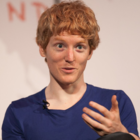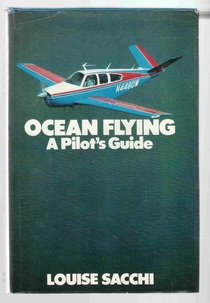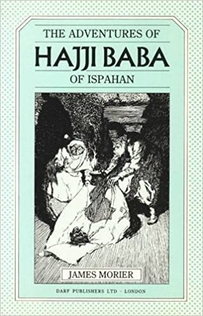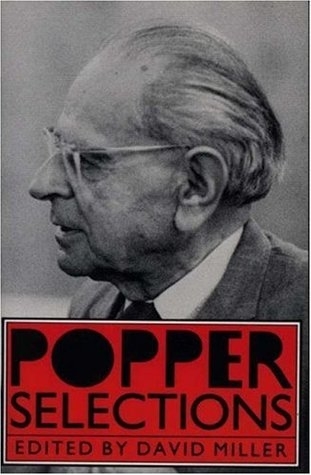
Patrick Collison Book Recommendations - 70 Important Books
Patrick Collison
If you should know one thing about Patrick Collison it is his enormous appetite for books. Patrick Collison book recommendations on his blog count up to 500 books.
We've made a thorough research and selected only important books that Patrick highlighted on his own bookshelf. He told that he often recommends books on Twitter and feels sorry for how haphazard book suggestion look, we've decided to change that and bring his favorite books into one beautiful list.
This list of Patrick Collison book recommendations is filtered for the most interesting books that left a lasting impression on Stripe CEO.
Take a look at 70 Patrick Collison favorite books!
See all
0
likes
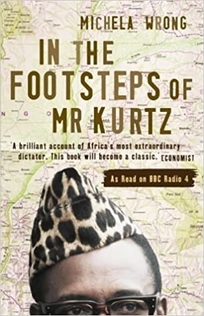
In the Footsteps of Mr Kurtz: Living on the Brink of Disaster in the Congo (Text Only)
A story of grim comedy amid the apocalypse and a celebration of the sheer indestructibility of the human spirit in a nation run riot: Michela Wrong’s vision of Congo/Zaire during the Mobutu years is incisive, ironic and revelatory. Mr Kurtz, the colonial white master, brought evil to the remote upper reaches of the Congo River. A century after Conrad’s ‘Heart of Darkness’ was first published, Michela Wrong revisits the Congo during the turbulent era of Mobutu Sese Seko. From the heart of Africa comes grotesque confusion: pink-lipsticked rebel soldiers mingle with track-suited secret policemen in hotels where fin de siecle dinner parties are ploughing through vintage wines rather than leave them to the new regime. Congo, the African country richest in natural resources, has institutionalised kleptomania. Everyone is on the take. Someone has even swiped one of the uranium rods from the country’s only nuclear reactor. Having presided over unprecedented looting of the country’s wealth, Mobutu, like Kurtz, retreated deep within the jungle to his palace of marble floors and gold taps. A hundred years on and nothing has changed.
See all

The Old Way
One of our most influential anthropologists reevaluates her long and illustrious career by returning to her roots—and the roots of life as we know itWhen Elizabeth Marshall Thomas first arrived in Africa to live among the Kalahari San, or bushmen, it was 1950, she was nineteen years old, and these last surviving hunter-gatherers were living as humans had lived for 15,000 centuries. Thomas wound up writing about their world in a seminal work, The Harmless People (1959). It has never gone out of print.Back then, this was uncharted territory and little was known about our human origins. Today, our beginnings are better understood. And after a lifetime of interest in the bushmen, Thomas has come to see that their lifestyle reveals great, hidden truths about human evolution.As she displayed in her bestseller, The Hidden Life of Dogs, Thomas has a rare gift for giving voice to the voices we don't usually listen to, and helps us see the path that we have taken in our human journey. In The Old Way, she shows how the skills and customs of the hunter-gatherer share much in common with the survival tactics of our animal predecessors. And since it is "knowledge, not objects, that endure" over time, Thomas vividly brings us to see how linked we are to our origins in the animal kingdom.The Old Way is a rare and remarkable achievement, sure to stir up controversy, and worthy of celebration.
See all
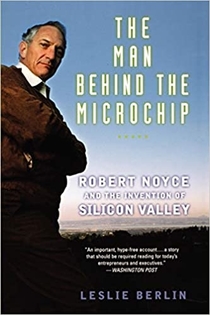
The Man Behind the Microchip
Hailed as the Thomas Edison and Henry Ford of Silicon Valley, Robert Noyce was a brilliant inventor, a leading entrepreneur, and a daring risk taker who piloted his own jets and skied mountains accessible only by helicopter. Now, in The Man Behind the Microchip, Leslie Berlin captures not only this colorful individual but also the vibrant interplay of technology, business, money, politics, and culture that defines Silicon Valley. Here is the life of a high-tech industry giant. The co-founder of Fairchild Semiconductor and Intel, Noyce co-invented the integrated circuit, the electronic heart of every modern computer, automobile, cellular telephone, advanced weapon, and video game. With access to never-before-seen documents, Berlin paints a fascinating portrait of Noyce: an ambitious and intensely competitive multimillionaire who exuded a "just folks" sort of charm, a Midwestern preacher's son who rejected organized religion but would counsel his employees to "go off and do something wonderful," a man who never looked back and sometimes paid a price for it. In addition, this vivid narrative sheds light on Noyce's friends and associates, including some of the best-known managers, venture capitalists, and creative minds in Silicon Valley. Berlin draws upon interviews with dozens of key players in modern American business--including Andy Grove, Steve Jobs, Gordon Moore, and Warren Buffett; their recollections of Noyce give readers a privileged, first-hand look inside the dynamic world of high-tech entrepreneurship. A modern American success story, The Man Behind the Microchip illuminates the triumphs and setbacks of one of the most important inventors and entrepreneurs of our time.
See all

China Airborne
More than two-thirds of the new airports under construction today are being built in China. Chinese airlines expect to triple their fleet size over the next decade and will account for the fastest-growing market for Boeing and Airbus. But the Chinese are determined to be more than customers. In 2011, China announced its Twelfth Five-Year Plan, which included the commitment to spend a quarter of a trillion dollars to jump-start its aerospace industry. Its goal is to produce the Boeings and Airbuses of the future. Toward that end, it acquired two American companies: Cirrus Aviation, maker of the world's most popular small propeller plane, and Teledyne Continental, which produces the engines for Cirrus and other small aircraft. In China Airborne, James Fallows documents, for the first time, the extraordinary scale of this project and explains why it is a crucial test case for China's hopes for modernization and innovation in other industries. He makes clear how it stands to catalyze the nation's hyper-growth and hyper- urbanization, revolutionizing China in ways analogous to the building of America's transcontinental railroad in the nineteenth century. Fallows chronicles life in the city of Xi'an, home to more than 250,000 aerospace engineers and assembly workers, and introduces us to some of the hucksters, visionaries, entrepreneurs, and dreamers who seek to benefit from China's pursuit of aerospace supremacy. He concludes by examining what this latest demonstration of Chinese ambition means for the United States and the rest of the world--and the right ways to understand it.
See all
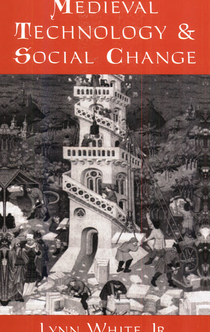
Medieval Technology and Social Change
This study examines the role of technological innovation during the rise of social groups in the Middle Ages
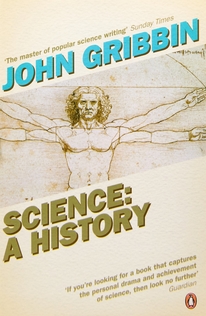
Science: a History, 1543-2001
This title begins with Galileo and takes the reader through to the scientific developments of string theory. It is an accessible narrative history, focusing on the way in which science has progressed by building on what went before, and also on the very close relationship between the progress of science and improved technology.
See all
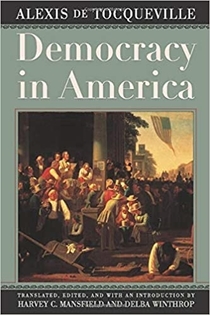
Democracy in America
An award-winning new translation of the most perceptive and influential book ever written about American politics and society. Alexis de Tocqueville, a young aristocratic French lawyer, came to the United States in 1831 to study its penitentiary systems. His nine-month visit and subsequent reading and reflection resulted in this landmark masterpiece of political observation and analysis. In Democracy in America, Tocqueville vividly describes the unprecedented social equality he found in America and explores its implications for European society in the emerging modern era. His book provides enduring insight into the political consequences of widespread property ownership, the potential dangers to liberty inherent in majority rule, the vital role of religion in American life, and the importance of civil institutions in an individualistic culture dominated by the pursuit of material self-interest. He also probes the deep differences between the free and slave states, writing prophetically of racism, bigotry, and prejudice in the United States. Brought to life by Arthur Goldhammer's clear, fluid, and vigorous translation, this volume of Democracy in America is the first to fully capture Tocqueville's achievements both as an accomplished literary stylist and as a profound political thinker. LIBRARY OF AMERICA is an independent nonprofit cultural organization founded in 1979 to preserve our nation's literary heritage by publishing, and keeping permanently in print, America's best and most significant writing. The Library of America series includes more than 300 volumes to date, authoritative editions that average 1,000 pages in length, feature cloth covers, sewn bindings, and ribbon markers, and are printed on premium acid-free paper that will last for centuries.
See all

Weather of the San Francisco Bay Region
Possibly no comparable area on earth displays as many varieties of weather simultaneously as the San Francisco Bay Region. Harold Gilliam explains the atmospheric forces and geologic formations that come together in this region's unique confluence of wind, river, ocean, bay, and hills. The fully revised and updated edition of this best-selling book incorporates the latest scientific information--much of it gathered from satellite technology--that has greatly improved our understanding of the weather in the years since the book was first published. Writing in a delightfully engaging style, Gilliam provides the tools necessary for understanding the grand show of nature that takes place around the San Francisco Bay--from Napa Valley in the north to San Jose in the south. Using nontechnical language to define weather terms and the general principles needed to understand weather patterns, Gilliam explains such phenomena as the jet stream, the famous summer fog that pours over the Golden Gate Bridge, and the often dangerous winter tule fog. This edition also includes a discussion of the planetary influences that may cause long-term changes in the local climate: Gilliam explains the "greenhouse effect" and what global warming could mean for the San Francisco Bay Area, looks at the local effects of the El Ni�o and La Ni�a phenomena, and considers the thinning of the ozone layer. This fascinating book, enhanced with informative maps, diagrams, and color illustrations, is liberally sprinkled with references to Bay Area neighborhoods and geographic features, giving the book a lively sense of local color.
See all

A Vast Machine
The science behind global warming, and its history: how scientists learned to understand the atmosphere, to measure it, to trace its past, and to model its future.Global warming skeptics often fall back on the argument that the scientific case for global warming is all model predictions, nothing but simulation; they warn us that we need to wait for real data, “sound science.” In A Vast Machine Paul Edwards has news for these skeptics: without models, there are no data. Today, no collection of signals or observations—even from satellites, which can “see” the whole planet with a single instrument—becomes global in time and space without passing through a series of data models. Everything we know about the world's climate we know through models. Edwards offers an engaging and innovative history of how scientists learned to understand the atmosphere—to measure it, trace its past, and model its future.
See all

Plato at the Googleplex
Is philosophy obsolete? Are the ancient questions still relevant in the age of cosmology and neuroscience, not to mention crowd-sourcing and cable news? The acclaimed philosopher and novelist Rebecca Newberger Goldstein provides a dazzlingly original plunge into the drama of philosophy, revealing its hidden role in today’s debates on religion, morality, politics, and science. At the origin of Western philosophy stands Plato, who got about as much wrong as one would expect from a thinker who lived 2,400 years ago. But Plato’s role in shaping philosophy was pivotal. On her way to considering the place of philosophy in our ongoing intellectual life, Goldstein tells a new story of its origin, re-envisioning the extraordinary culture that produced the man who produced philosophy. But it is primarily the fate of philosophy that concerns her. Is the discipline no more than a way of biding our time until the scientists arrive on the scene? Have they already arrived? Does philosophy itself ever make progress? And if it does, why is so ancient a figure as Plato of any continuing relevance? Plato at the Googleplex is Goldstein’s startling investigation of these conundra. She interweaves her narrative with Plato’s own choice for bringing ideas to life—the dialogue. Imagine that Plato came to life in the twenty-first century and embarked on a multicity speaking tour. How would he handle the host of a cable news program who denies there can be morality without religion? How would he mediate a debate between a Freudian psychoanalyst and a tiger mom on how to raise the perfect child? How would he answer a neuroscientist who, about to scan Plato’s brain, argues that science has definitively answered the questions of free will and moral agency? What would Plato make of Google, and of the idea that knowledge can be crowd-sourced rather than reasoned out by experts? With a philosopher’s depth and a novelist’s imagination and wit, Goldstein probes the deepest issues confronting us by allowing us to eavesdrop on Plato as he takes on the modern world.(With black-and-white photographs throughout.)
See all
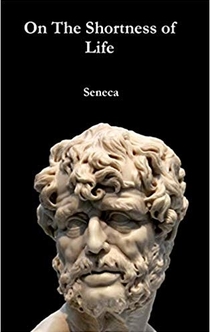
On the Shortness of Life
Throughout history, some books have changed the world. They have transformed the way we see ourselves—and each other. They have inspired debate, dissent, war and revolution. They have enlightened, outraged, provoked and comforted. They have enriched lives—and destroyed them. Now, Penguin brings you the works of the great thinkers, pioneers, radicals and visionaries whose ideas shook civilization, and helped make us who we are. Penguin's Great Ideas series features twelve groundbreaking works by some of history's most prodigious thinkers, and each volume is beautifully packaged with a unique type-drive design that highlights the bookmaker's art. Offering great literature in great packages at great prices, this series is ideal for those readers who want to explore and savor the Great Ideas that have shaped the world.The Stoic writings of the philosopher Seneca, who lived from c. 5 BC to AD 65, offer powerful insights into the art of living, the importance of reason and morality, and continue to provide profound guidance to many through their eloquence, lucidity and timeless wisdom. This selection of Seneca's orks was taken from the Penguin Classics edition of Dialogues and Letters, translated by C.D.N. Costa, and includes the essays On the Shortness of Life, Consolation to Helvia, and On Tranquility of Mind.
See all

Out of Mao's Shadow
From an award-winning journalist for The Washington Post and one of the leading China correspondents of his generation comes an eloquent and vivid chronicle of the world's most successful authoritarian state -- a nation undergoing a remarkable transformation.Philip P. Pan's groundbreaking book takes us inside the dramatic battle for China's soul and into the lives of individuals struggling to come to terms with their nation's past -- the turmoil and trauma of Mao's rule -- and to take control of its future. Capitalism has brought prosperity and global respect to China, but the Communist government continues to resist the demands of its people for political freedom.Pan, who reported in China for the Post for seven years and speaks fluent Chinese, eluded the police and succeeded in going where few Western journalists have dared.From the rusting factories in the industrial northeast to a tabloid newsroom in the booming south, from a small-town courtroom to the plush offices of the nation's wealthiest tycoons, he tells the gripping stories of ordinary men and women fighting for political change. An elderly surgeon exposes the government's cover-up of the SARS epidemic. A filmmaker investigates the execution of a young woman during the Cultural Revolution. A blind man is jailed for leading a crusade against forced abortions carried out under the one-child policy.The young people who filled Tiananmen Square in the spring of 1989 saw their hopes for a democratic China crushed in a massacre, but Pan reveals that as older, more pragmatic adults, many continue to push for justice in different ways. They are survivors whose families endured one of the world's deadliest famines during the Great Leap Forward, whose idealism was exploited during the madness of the Cultural Revolution, and whose values have been tested by the booming economy and the rush to get rich.
See all
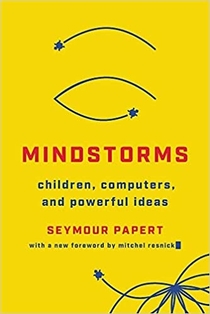
Mindstorms
In this revolutionary book, a renowned computer scientist explains the importance of teaching children the basics of computing and how it can prepare them to succeed in the ever-evolving tech world.Computers have completely changed the way we teach children. We have Mindstorms to thank for that. In this book, pioneering computer scientist Seymour Papert uses the invention of LOGO, the first child-friendly programming language, to make the case for the value of teaching children with computers. Papert argues that children are more than capable of mastering computers, and that teaching computational processes like de-bugging in the classroom can change the way we learn everything else. He also shows that schools saturated with technology can actually improve socialization and interaction among students and between students and teachers.Technology changes every day, but the basic ways that computers can help us learn remain. For thousands of teachers and parents who have sought creative ways to help children learn with computers, Mindstorms is their bible.
See all

The Paris Review Interviews, I
A Picador Paperback OriginalHow do great writers do it? From James M. Cain's hard-nosed observation that "writing a novel is like working on foreign policy. There are problems to be solved. It's not all inspirational," to Joan Didion's account of how she composes a book--"I constantly retype my own sentences. Every day I go back to page one and just retype what I have. It gets me into a rhythm"--The Paris Review has elicited some of the most revelatory and revealing thoughts from the literary masters of our age. For more than half a century, the magazine has spoken with most of our leading novelists, poets, and playwrights, and the interviews themselves have come to be recognized as classic works of literature, an essential and definitive record of the writing life. They have won the coveted George Polk Award and have been a contender for the Pulitzer Prize. Now, Paris Review editor Philip Gourevitch introduces an entirely original selection of sixteen of the most celebrated interviews. Often startling, always engaging, these encounters contain an immense scope of intelligence, personality, experience, and wit from the likes of Elizabeth Bishop, Ernest Hemingway, Truman Capote, Rebecca West, and Billy Wilder. This is an indispensable book for all writers and readers.
See all

The Beginning of Infinity
The New York Times bestseller: A provocative, imaginative exploration of the nature and progress of knowledge“Dazzling.” – Steven Pinker, The GuardianIn this groundbreaking book, award-winning physicist David Deutsch argues that explanations have a fundamental place in the universe—and that improving them is the basic regulating principle of all successful human endeavor. Taking us on a journey through every fundamental field of science, as well as the history of civilization, art, moral values, and the theory of political institutions, Deutsch tracks how we form new explanations and drop bad ones, explaining the conditions under which progress—which he argues is potentially boundless—can and cannot happen. Hugely ambitious and highly original, The Beginning of Infinity explores and establishes deep connections between the laws of nature, the human condition, knowledge, and the possibility for progress.
See all

Foucault's Pendulum
Three book editors, jaded by reading far too many crackpot manuscripts on the mystic and the occult, are inspired by an extraordinary conspiracy story told to them by a strange colonel to have some fun. They start feeding random bits of information into a powerful computer capable of inventing connections between the entries, thinking they are creating nothing more than an amusing game, but then their game starts to take over, the deaths start mounting, and they are forced into a frantic search for the truth
See all

Stories of Your Life and Others
Includes 'Story of Your Life' the basis for the major motion picture Arrival, starring Amy Adams, Forest Whitaker, Jeremy Renner, and directed by Denis Villeneuve.With Stories of Your Life and Others, his masterful first collection, multiple-award-winning author Ted Chiang deftly blends human emotion and scientific rationalism in eight remarkably diverse stories, all told in his trademark precise and evocative prose. From a soaring Babylonian tower that connects a flat Earth with the firmament above, to a world where angelic visitations are a wondrous and terrifying part of everyday life; from a neural modification that eliminates the appeal of physical beauty, to an alien language that challenges our very perception of time and reality. . . Chiang's rigorously imagined fantasia invites us to question our understanding of the universe and our place in it.
See all

If the Universe Is Teeming with Aliens ... WHERE IS EVERYBODY?
FROM THE REVIEWS: ¿Webb offers coherent, understandable, and sometimes humorous coverage of a diverse range of topics. He provides readers with non-trivial insights into research fields they may not have encountered previously . . . I think everyone who has ever considered the possibility that other intelligent civilizations exist elsewhere within our galaxy will enjoy Where Is Everybody? They will find much to agree with, and much to argue about, in this very accessible volume.¿ ¿SCIENCE During a Los Alamos lunchtime conversation that took place more than 50 years ago, four world-class scientists agreed, given the size and age of the Universe, that advanced extraterrestrial civilizations simply had to exist. The sheer numbers demanded it. But one of the four, the renowned physicist and back-of-the-envelope calculator Enrico Fermi, asked the telling question: If the extraterrestrial life proposition is true, he wondered, "Where IS everybody?" In this lively and thought-provoking book, Stephen Webb presents a detailed discussion of the 50 most cogent and intriguing answers to Fermi's famous question, divided into three distinct groups: - Aliens are already here among us. Here are answers ranging from Leo Szilard's suggestion that they are already here, and we know them as Hungarians, to the theorists who claim that aliens built Stonehenge and the Easter Island statues. - Aliens exist, but have not yet communicated. The theories in this camp range widely, from those who believe we simply don't have the technologies to receive their signals, to those who believe the enormities of space and time work against communication, to those who believe they're hiding from us. - Aliens do not exist. Here are the doubters' arguments, from the Rare Earth theory to the author's own closely argued and cogently stated skepticism. The proposed solutions run the gamut from the crackpot to the highly serious, but all deserve our consideration. The varieties of arguments -- from first-rate scientists, philosophers and historians, and science fiction authors -- turn out to be astonishing, entertaining, and vigorous intellectual exercises for any reader interested in science and the sheer pleasure of speculative thinking. Stephen Webb is a physicist working at the Open University in England and the author of Measuring the Universe.
See all

Season of the Witch
"In a kaleidoscopic narrative ... bestselling author David Talbot tells the gripping story of San Francisco in the turbulent years between 1967 and 1982--and of the extraordinary men and women who led to the city's ultimate rebirth and triumph."--P. [4] of cover.
See all
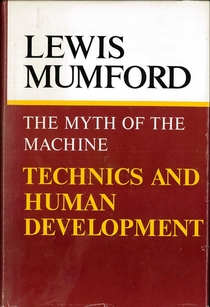
The Myth of the Machine: Technics and human development
Mumford explains the forces that have shaped technology since prehistoric times and shaped the modern world. He shows how tools developed because of significant parallel inventions in ritual, language, and social organization. “It is a stimulating volume, informed both with an enormous range of knowledge and empathetic spirit” (Eliot Fremont-Smith, New York Times). Index; photographs.
See all

Toward a Theory of Instruction
This country's most challenging writer on education presents here a distillation, for the general reader, of half a decade's research and reflection. His theme is dual: how children learn, and how they can best be helped to learn--how they can be brought to the fullest realization of their capacities.Jerome Bruner, Harper's reports, has "stirred up more excitement than any educator since John Dewey." His explorations into the nature of intellectual growth and its relation to theories of learning and methods of teaching have had a catalytic effect upon educational theory. In this new volume the subjects dealt with in The Process of Education are pursued further, probed more deeply, given concrete illustration and a broader context."One is struck by the absence of a theory of instruction as a guide to pedagogy," Mr. Bruner observes; "in its place there is principally a body of maxims." The eight essays in this volume, as varied in topic as they are unified in theme, are contributions toward the construction of such a theory. What is needed in that enterprise is, inter alia, "the daring and freshness of hypotheses that do not take for granted as true what has merely become habitual," and these are amply evidenced here.At the conceptual core of the book is an illuminating examination of how mental growth proceeds, and of the ways in which teaching can profitably adapt itself to that progression and can also help it along. Closely related to this is Mr. Bruner's "evolutionary instrumentalism," his conception of instruction as the means of transmitting the tools and skills of a culture, the acquired characteristics that express and amplify man's powers--especially the crucial symbolic tools of language, number, and logic. Revealing insights are given into the manner in which language functions as an instrument of thought.The theories presented are anchored in practice, in the empirical research from which they derive and in the practical applications to which they can be put. The latter are exemplified incidentally throughout and extensively in detailed descriptions of two courses Mr. Bruner has helped to construct and to teach--an experimental mathematics course and a multifaceted course in social studies. In both, the students' encounters with the material to be mastered are structured and sequenced in such a way as to work with, and to reinforce, the developmental process.Written with all the style and lan that readers have come to expect of Mr. Bruner, Toward a Theory of Instruction is charged with the provocative suggestions and inquiries of one of the great innovators in the field of education.
See all

Age of Ambition: Chasing Fortune, Truth, and Faith in the New China
Pulitzer Prize in General Nonfiction finalistWinner of the 2014 National Book Award in nonfiction.An Economist Best Book of 2014.A vibrant, colorful, and revelatory inner history of China during a moment of profound transformationFrom abroad, we often see China as a caricature: a nation of pragmatic plutocrats and ruthlessly dedicated students destined to rule the global economy-or an addled Goliath, riddled with corruption and on the edge of stagnation. What we don't see is how both powerful and ordinary people are remaking their lives as their country dramatically changes. As the Beijing correspondent for The New Yorker, Evan Osnos was on the ground in China for years, witness to profound political, economic, and cultural upheaval. In Age of Ambition, he describes the greatest collision taking place in that country: the clash between the rise of the individual and the Communist Party's struggle to retain control. He asks probing questions: Why does a government with more success lifting people from poverty than any civilization in history choose to put strict restraints on freedom of expression? Why do millions of young Chinese professionals-fluent in English and devoted to Western pop culture-consider themselves "angry youth," dedicated to resisting the West's influence? How are Chinese from all strata finding meaning after two decades of the relentless pursuit of wealth? Writing with great narrative verve and a keen sense of irony, Osnos follows the moving stories of everyday people and reveals life in the new China to be a battleground between aspiration and authoritarianism, in which only one can prevail.
See all
